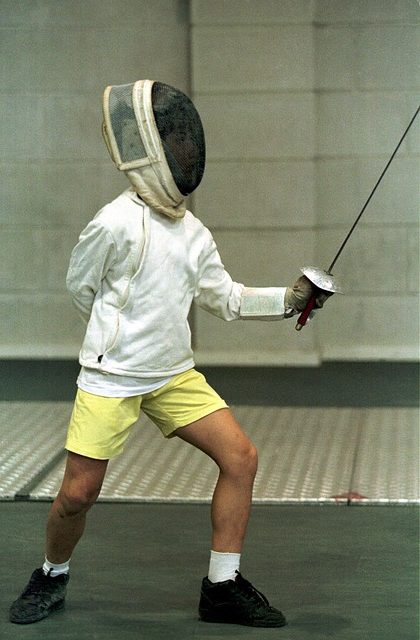Fencing for kids: A healthy discipline, a way of life, and a sport par excellence
The knowledge that fencing exists, is slowly, yet surely reaching far and wide. Fencing is one of the first sports to be played at the Olympics and still is a sport featuring in this leading international sporting event. The merits of fencing are noteworthy. Not many a sport come close to this one when it comes to all round development of an individual. Fencing is much more than a sport. It is a way of life. Professionals (clubs, national, international) and hobbyists continue to fence well into their advanced years. Once a fencer, always a fencer – in spirit, or on the piste.
Is fencing for children?
Yes, like a lot of other sport. When begun at the right age, fencing can lend inimitable qualities to a child’s personality, gender and other such factors notwithstanding. Worldwide, it is not uncommon to see children under ten years of age, enroll for fencing classes with clubs in their vicinity. This sight is now rather common in many cities across India. The right and recommended age for children to begin fencing is nine years and it is only at ten years of age that they start to compete in state-level/ other competitions.
A word of caution though – while the benefits of a sport (or any other activity) may be manifold, undue pressure from guardians and parents oftentimes undoes the good side of it all. It is imperative to be mindful of a child’s interest and his development as well as motor skills, before having him enrolled for fencing. Remember, you can take the horse to water, but you can’t make it drink! Moreover, uncalled for pressure (both by parents and the coach/ club) can lead to adverse effects like injury to and unintended behaviour of the child.
Where can my child learn how to fence?
 While your child’s school may not necessarily have fencing in its curriculum, there are sporting clubs in Delhi NCR galore, where children – as early as nine years of age – can enroll to learn how to fence. A few clubs also conduct summer camps for children. These camps are a good way to assess a child’s interest in the sport and can mean a welcome break from his routine.
While your child’s school may not necessarily have fencing in its curriculum, there are sporting clubs in Delhi NCR galore, where children – as early as nine years of age – can enroll to learn how to fence. A few clubs also conduct summer camps for children. These camps are a good way to assess a child’s interest in the sport and can mean a welcome break from his routine.
En garde! Prêts. Allez
Weapon in hand, fencers strike a pose to get into action. Fencing is fast, fencing is cool, fencing is unique, but is fencing safe? Yes, it is. There are certified coaches who help young fencers embrace the sport with comfort and safety. And then there is protective gear – mask, chest protector, plastron, jacket, glove, breeches, and shoes. In fact, fencing is fast becoming a much sought after sport, especially by students who dream to win a college degree outside of India, and by those who aim to secure admission to a prestigious college in India through a sports scholarship.
Why fence?
When a child learns how to fence, she learns how to think independently – no matter how much one has been coached to make the right moves on the piste, during a bout, with the weapon in hand, it is an individual’s intellect that comes in handy. Fencing teaches children the subtle art of balancing the mind and body. It sharpens the intellect. It prepares them to learn from each loss and think on their feet. Add to that agility, tactical thinking, and confidence. Voila! You have a self-assured, disciplined and focused player. See a young fencer or two strike a pose before a bout (or during practice), and you will know exactly what that means.
To some, fencing is a lot like playing chess, but with a weapon. It calls for perfect hand – eye coordination. It is an exercise of the body and mind. It builds reflexes and instills in fencers a respect for peers, counterparts, and coaches. To others, it is like ballet, with the weapon as an extension of the arm. It is delicate and powerful in the same breath. It is control and finesse. It is a lesson in patience, and perseverance. In fact, if fencing folklore is to be believed, the sport did earn some of its signature footwork from ballet! And above all, fencing is a great conversation starter – always and every time. Oh, do add social skills and confidence to that list!




